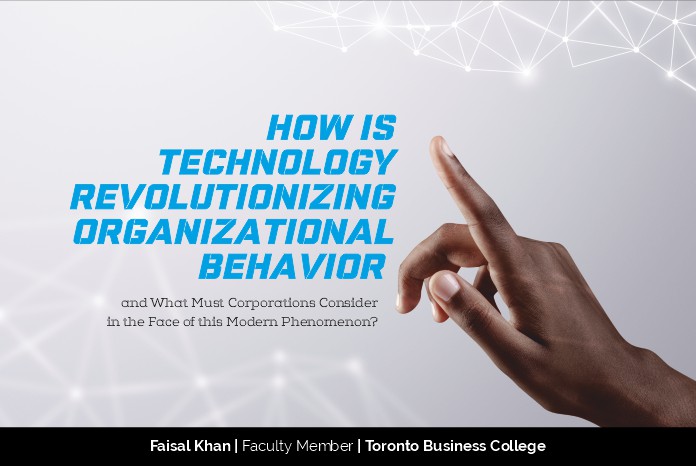In the dynamic business landscape, technology has profoundly altered organizational behavior, ushering in a shift from traditional to digital practices. This transformation not only changes how businesses operate but also redefines how employees collaborate. Corporations must critically reflect on adapting to this modern phenomenon for sustained success in this rapidly evolving environment. A compelling example of adapting to the digital age is Microsoft, led by CEO Satya Nadella. Microsoft’s significant transformation underscores a commitment to adaptability, innovation, and a people-centric approach. Such instances exemplify how modern organizations navigate digital challenges through strategic adaptation and a dedication to core values.
In the era of AI and analytics, upskilling is a paramount concern for companies. The perspectives of Baby boomers and Generation X, shaped by different ‘Industrial Revolution’ stages, contrast significantly with those of Millennials or Generation A. Technological changes impact not only individuals but also influence organizational behaviors. Given the inevitability of this phenomenon, let’s explore how a Modern, Agile, and Digital organization should confront challenges and embrace these transformative changes.
Digital Collaboration Platforms
The rise of digital collaboration platforms marks a transformative shift in team interaction and workflow. Embracing tools such as Slack and Microsoft Teams enhances communication, fostering a more connected and engaged workforce. Project management platforms contribute to streamlined collaboration, ensuring that teams work seamlessly towards common goals, thereby shaping a dynamic and interconnected organizational culture.
Remote Work Culture
Technology’s role in enabling remote work at an unprecedented scale demands a corresponding shift in organizational behavior. Corporations must adapt by prioritizing flexibility, trust, and establishing clear communication channels. Embracing remote work culture ensures sustained employee engagement and productivity. By leveraging technology for virtual collaboration and project management, organizations can maintain a cohesive and efficient remote workforce, creating an environment where employees feel supported and valued.
Data-Driven Decision-Making
The era of abundant data empowers organizations to make informed decisions through analytics. Leaders can leverage technology to gather and analyze data on employee performance, preferences, and feedback. This data-driven approach shapes policies that enhance engagement and productivity. Implementing robust data analytics tools contributes to strategic organizational behavior, ensuring that decisions are grounded in real-time insights, thereby fostering a culture of continual improvement and adaptability.
Employee Well-Being Apps
Technology plays a pivotal role in prioritizing employee well-being through dedicated apps and tools. By offering resources supporting mental health, work-life balance, and stress management, organizations showcase a modern approach to organizational behavior. This commitment to holistic employee health not only boosts morale but also contributes to a positive workplace culture. By leveraging technology to address the multifaceted aspects of well-being, organizations create an environment where employees feel supported, leading to increased engagement and overall job satisfaction.
Virtual Training and Development
Technology’s capacity for innovation extends to training methods, including virtual reality (VR) and online courses. Corporations should invest in digital learning platforms, fostering a culture of continuous learning and development. This not only upskills employees but also contributes to higher engagement and productivity. The adoption of advanced training technologies demonstrates a commitment to employee growth, aligning organizational behavior with a forward-thinking approach that embraces the opportunities presented by technology.
Flexible Work Schedules
Technology facilitates flexible work schedules through remote access and cloud-based systems. Corporations should implement policies supporting work-life balance, recognizing the positive influence of flexibility on engagement and job satisfaction. Leveraging technology to enable flexible work arrangements promotes a culture that values individual needs, contributing to a more motivated and productive workforce. The incorporation of technology in work schedule flexibility reflects a modern organizational behavior that adapts to the evolving expectations of employees.
Performance Monitoring and Feedback Tools
Technology provides tools for real-time performance monitoring and feedback, contributing to a transparent evaluation system. Corporations should embrace these tools, emphasizing constructive feedback and recognition. This approach boosts employee morale and productivity, aligning organizational behavior with a culture that values continuous improvement. Leveraging technology for performance evaluation fosters an environment where employees feel seen and appreciated, positively influencing their engagement and commitment to organizational goals.
AI in Recruitment and HR
Artificial Intelligence (AI) transforms recruitment and HR functions, allowing for strategic and personalized talent management. By leveraging AI, organizations can attract and retain top talent, positively impacting organizational behavior and performance. The incorporation of AI in recruitment processes streamlines decision-making, ensuring a more efficient and targeted approach to talent acquisition. This modernization in HR practices reflects an organizational behavior that embraces technological advancements to create a competitive edge in attracting and retaining skilled professionals.
Inclusive Communication Channels
Technology facilitates diverse communication channels, including video conferencing and messaging apps. Corporations should ensure these channels are inclusive, providing equal opportunities for all employees to contribute. Inclusive communication fosters a sense of belonging and engagement, aligning organizational behavior with a culture that values diversity. Leveraging technology for inclusive communication ensures that every voice is heard, contributing to a dynamic and collaborative workplace environment that reflects the principles of fairness and equality.
Cybersecurity and Privacy Measures
As technology’s role becomes more integral, organizations must prioritize cybersecurity and privacy measures to protect sensitive information. Ensuring a secure and private digital environment builds trust among employees, contributing to a positive organizational culture. Implementing robust cybersecurity protocols reflects a commitment to maintaining the integrity of data and safeguarding against potential threats. This emphasis on cybersecurity aligns organizational behavior with a responsible and transparent approach to technology, reinforcing trust and supporting higher levels of engagement and productivity.
The shift in organizational behavior amid the digital age demands proactive measures. Success hinges on embracing change, fostering adaptability, and striking a balance between technology and human elements. Navigating technology’s challenges requires corporations to reflect on their values, adapt structures, and cultivate a culture embracing the transformative power of the digital revolution. Only through thoughtful reflection and strategic adaptation can organizations thrive in this dynamic, technology-driven world.





